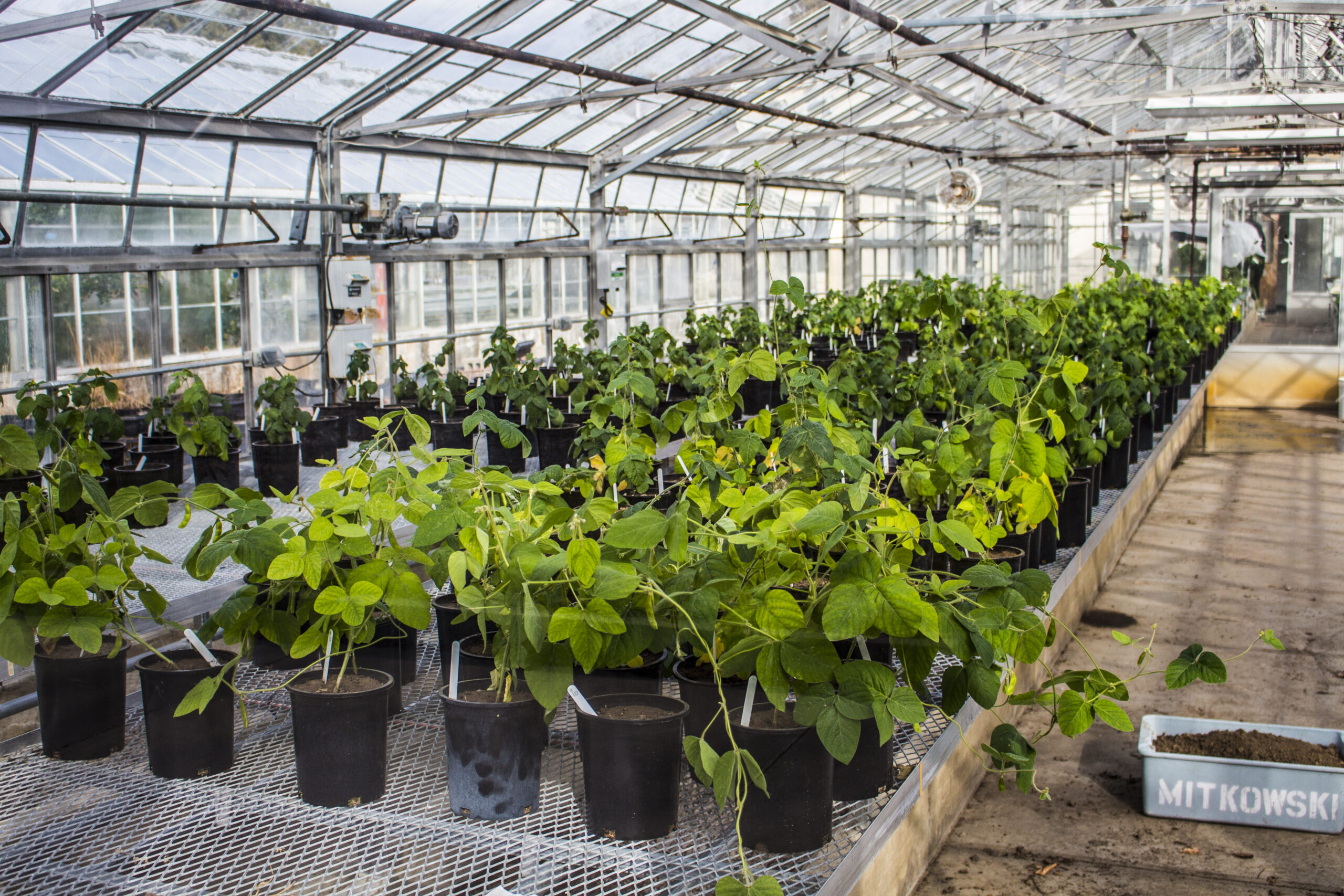URI recently held a webinar event to help students learn how to grow plants at home. Photo by James McIntosh.
For this week’s installment of the University of Rhode Island’s Learn at Home Webinar series, Susan Scotti, one of Rhode Island’s master gardeners, taught over 500 viewers how to transfer their indoor seed startings to their outdoor garden successfully.
The last webinar, which happened on Feb. 16, had over 1,000 viewers. That event taught viewers about starting your own garden indoors and this webinar continued where the last left off.
Kate Venturini, a program administrator for URI’s Cooperative Extension program, is happy with the program’s success so far and is excited by what it’s doing for the community.
“Scotti is one of the 700 master gardener volunteers in Rhode Island,” Venturini said. “She’s also a vegetable propagation leader at URI’s East Farm. It’s amazing because she’s a volunteer.”
Venturini said that people can join the Learn at Home webinar at any point in the series, even if they missed the prior sessions.
The topics of this webinar started with the basics of potting up. Once your seed startings become too big for their original containers, they will fail to thrive. Therefore, they will need to be put in a more spacious environment.
Scotti also talked about basic gardening rules for planting sprouted seeds outside, including providing your plants with enough sunlight and not planting them within 10 feet of a building.
Water is important for any organism to thrive, however. If a plant is overwatered or underwatered, it can have drastic effects, according to Scotti. She explained that the conditions of the plant’s environment will affect how much and when it should be watered. She recommended using a shower-type technique with a hose, drip irrigation, or even a soda bottle with holes poked in the top.
Wind can also be detrimental to the growth of plants, especially small plants which are easily damaged by strong gusts.
Scotti also spoke about hardening off when planting your garden outdoors or transporting your seed startings outdoors. Hardening off is the practice of waiting to plant your seeds or transporting startings outdoors until all the snow has melted for spring. Scotti and Venturini both recommended waiting to plant your seedlings outdoors until the nights are above 50 degrees outside so as not to “stress your plants,” making them more susceptible to disease.
As for any other information, Scotti and Venturini suggest turning to the back of the seed packet, which provides planting information for each specific plant.
The Cooperative Extension at URI makes it their mission to help all members of the community be involved in the learning through the science they promote. Because of this, webinar recordings are available through the Cooperative Extension website after each live event with closed captioning.
“We’re working hard to make sure everyone can get this information,” said Venturini. “We are very inclusive.”
There are other helpful tips that can be found in the Rhode Island planting calendar, which can be found through the URI Cooperative Extension’s website. This calendar includes information such as whether plants should be planted outside immediately or started indoors, when they need to be transferred and when they should be harvested.





